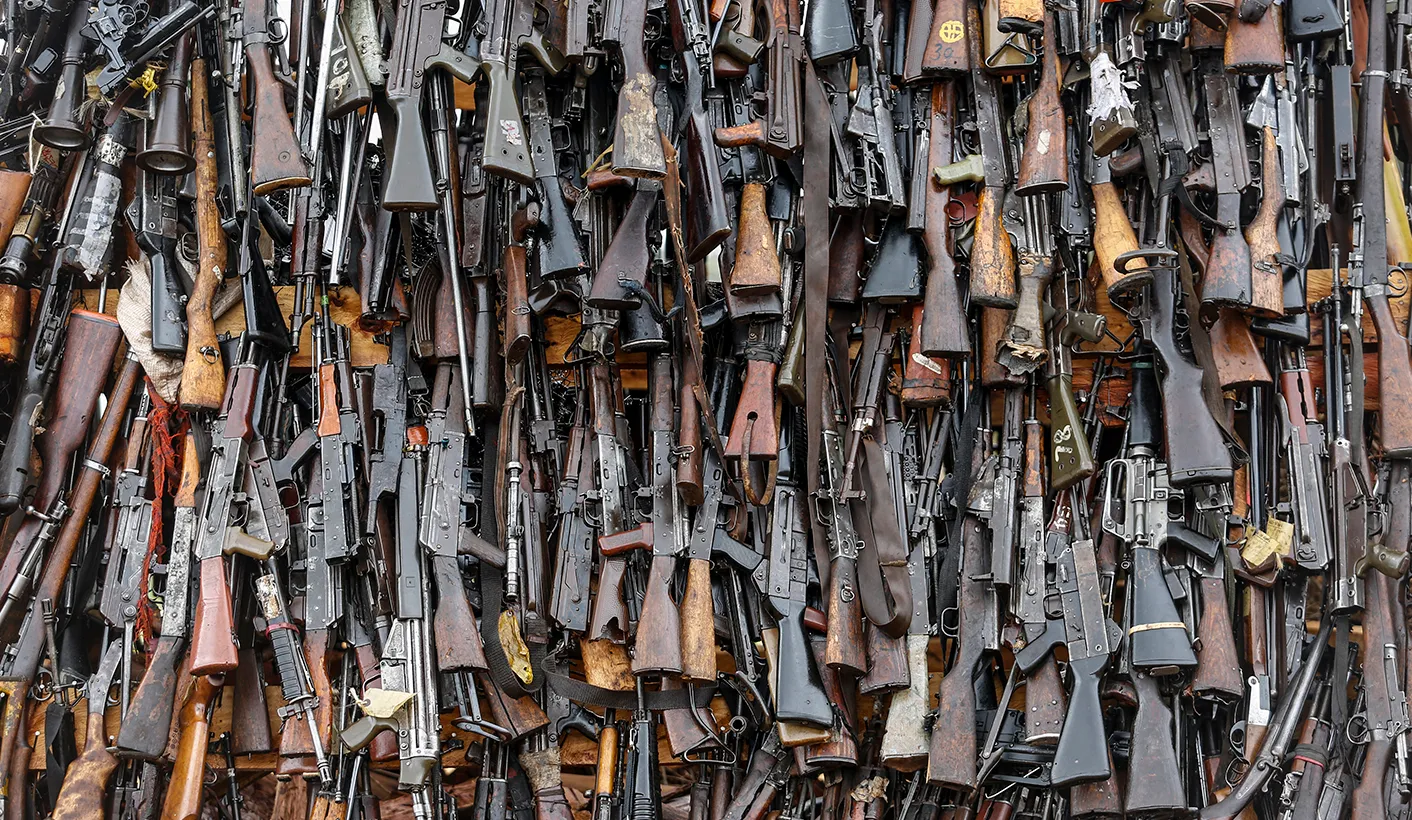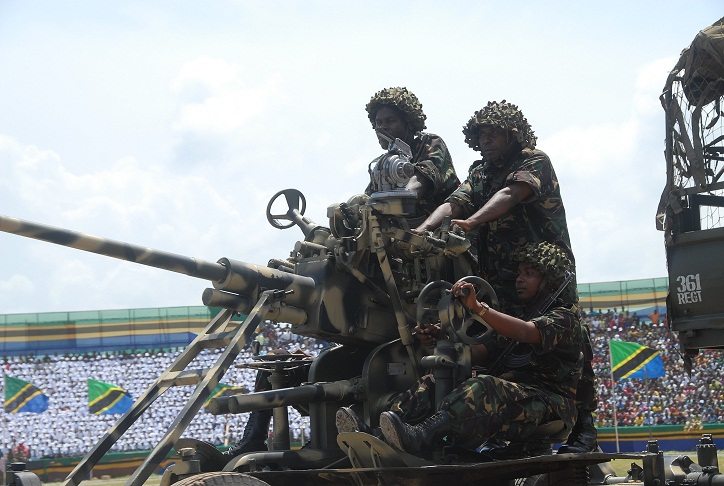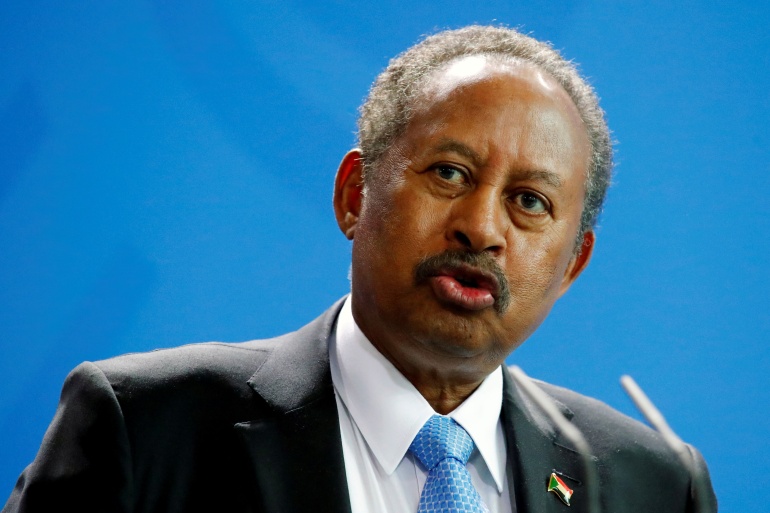Since the end of the Cold War in 1991, the global trade of heavy weapons system has reached its highest level, according to the Stockholm International Peace Research Institute. Its 2018 report said the world’s ten biggest arms exporting countries, including the U.S., France, and Russia, made armament transfers worth more than $25 billion. Weapons sales to Africa has, however, decreased.

According to the Stockholm report, African nations have imported fewer arms over the last decade, with imports decreasing by 6.5 per cent. It said that even though many states in sub-Saharan Africa are affected by armed conflict and some receive foreign military aid, the volume of major arms imported by those states is relatively small.
Over the years, African countries that had, since time immemorial, been producing their own weapons, have been looking at ways to strengthen their weapons manufacturing capacity to produce more powerful military weapons and equipment.
In most of these countries where there had been conflicts and civil disobedience, local manufacturers or blacksmiths have been cashing in on the lucrative industry by manufacturing various types of weapons that tend to be a source of worry for authorities, as guns have become part of the culture.
The following African countries have been manufacturing some awesome weapons for their military and police, and even for export:
South Africa
Coming out of the cruel apartheid regime, South Africa’s locally manufactured weapons were at the time described as crowd-control equipment, consisting of attack helicopters, military trucks, security vehicles, assault rifles, handguns and armoured personnel cars. Considered as a country with one of the most advanced weaponry in the world today, South Africa has, in recent times, made some light armoured vehicles and anti-tank missiles. Its weaponry is demanded in several countries across the world. In 2016 and 2017, South Africa supplied arms to Saudi Arabia and the United Arab Emirates including heavy artillery guns and assault rifles, ammunition, armoured vehicles, surveillance and military technology, according to the National Conventional Arms Control Committee (NCACC).
Sudan
With its locally-made mortars, rocket launchers, and associated ammunition that continue to appear in conflict zones within and beyond Sudan, the country boasts of being one of the largest weaponry manufacturers in Africa. In 1959, El Shajara ammunition plant was established to produce small arms ammunition. In 1993, production was expanded when the then President Omar Al Bashir opened the Military Industry Corporation (MIC). The MIC has eight main categories: ammunition, conventional weapons, armoured vehicles and main battle tanks, gear, outfits, and equipment, electronics, aviation, marine, and vehicles, reports Dabanga.
Producing military products in at least seven distinct manufacturing plants, including Yarmouk Industrial Complex,El Shajara Ammunition Plant, and El Shahid Ibrahim Shamseldin Complex, the MIC, in 2013, participated in the IDEX weapons convention, held bi-annually in Abu Dhabi.
Ethiopia
Noted as one of the main weapons manufacturers for the African Union, Ethiopia has a booming weapons manufacturing industry. The capital, Addis Ababa makes its own version of the AK-47 rifle and PKM machine gun. It assembles its own grenade launchers and ammunition. The country’s arms industry can also manufacture and refurbish tanks and armoured vehicles, reports War Is Boring.
Uganda
The East African country has what gunpolicy.org describes as small arms ammunition factories. There are about three weapons manufacturers in Uganda, with the largest, Nakasongola Arms Factory being owned by the Chinese (government and private sector) interests. Uganda had since time immemorial produced some of its weaponry, especially in the late 19th century when the king of Bunyoro, Kabarega, constructed a powerful army through the use of contemporary weapons, such as percussion muskets, Remington rifles, and breech and muzzleloaders.
Nigeria
Nigeria has the domestic capacity to manufacture small arms which are similar to the AK-47 and the requisite ammunition, reports gunpolicy.org. The country’s Defence Industries Corporation of Nigeria (DICON), a military division responsible for weapons production, which was set up in 1964, fell into decline around 2015, compelling the government to call for an overhaul. Aljazeera reported in 2015 that the division’s factory in the northern city of Kaduna produces rifles and civilian tools. The government then indicated that the country would increase the domestic production of weapons for its armed forces to enable it to fight terror groups, including Boko Haram. The Nigerian Army recently unveiled a wide range of locally-made weapons and equipment which includes an Infantry Patrol Vehicle (IPV), a Combat Fighting Motorcycle (CFM), unmanned aerial vehicles (UAVs), and an Automated Sniper Rifle (ASR). Local artisans do produce firearms as well, a report by ISS Today said.
Namibia
In March this year, the Namibian government indicated that the number of legally held guns in the country had increased significantly, about 210 000 licensed firearms across the country. Since 1977, the country’s Windhoeker MaschinenFabrik (WMF), under the Namibian Defense Force, has manufactured some wheeled light-armoured vehicles for the country’s army and for export. In 2014, the company unveiled a relatively light and versatile armoured vehicle at the Africa Aerospace and Defence (AAD) show.
Kenya
With assistance from FN Herstal of Belgium (1996), Kenya has the domestic capacity to produce small arms and ammunition, the report by globalpolicy.org said, citing a bullet factory which then had a capacity 20,000-60,000 bullets per day while local consumption was about two million bullets per year.
“The factory produces three types of bullets, namely, 9mm ammunition for the FN35 Browning pistol and the Sterling, Uzi or H&K MP5 submachine guns used by the armed forces; 7.62x51mm for the FNFAL and the G3, the main rifles used by the armed forces; and 5.56mm ammunition, used by the Kenya police,” the report said, adding that Kenya had then refused to open its factories for independent verification of their facilities despite ratifying the UN Arms Trade Treaty. The bullet factory, meanwhile, in 2013/2014 made some losses as it sunk into debts. In 2016, it was reported that Kenya had the largest number of guns in civilian hands in eastern Africa amid rising gun attacks.
Egypt
Noted as one of the top weapons producers in Africa, Egypt has, since the 1820s, been producing its own arms, including warships, artillery, rifles, bombs and ammunition, said the Human Rights Watch. The government established ammunitions and small arms companies, as well as, aircraft factories that produce various weapons. In 1981, Egypt produced $400 million worth of arms in more than 30 factories, according to an article by Jim Paul. During the 1970s and 1980s, Egypt expanded and diversified its production of arms to achieve partial self-sufficiency and to develop an export market in the Middle East and Africa, reports Global Security. The country’s technicians and scientists were then producing several indigenous weapons systems. Last November, the country said it was looking at enhancing its status as an arms export source for several African countries.
Ghana
Ghana has a longstanding gun-making tradition, with local blacksmiths producing made-in-Ghana guns that are known regionally for their accessibility, effectiveness, and competitive prices. This has become a problem for authorities who fear that these guns might be used by armed groups to wreak havoc. The dominant locally manufactured weapons are pistols, shotguns and single-barrel guns, according to a 2010 research. Each of the 10 regions in Ghana houses gun-manufacturing workshops, including towns like Kpando and Ho in the Volta region and Suame Magazine in the Ashanti region, the research added.
Tanzania
The country has small arms ammunition factories, said gunpolicy.org. The country’s Mzinga Corporation, which is a small organization in the small arms ammunition manufacturers industry, “reportedly had an annual production capacity of 7 million rounds,” according to a Stockholm International Peace Research Institute’s Policy Paper.
Source: FaceAfrica





No comments! Be the first commenter?